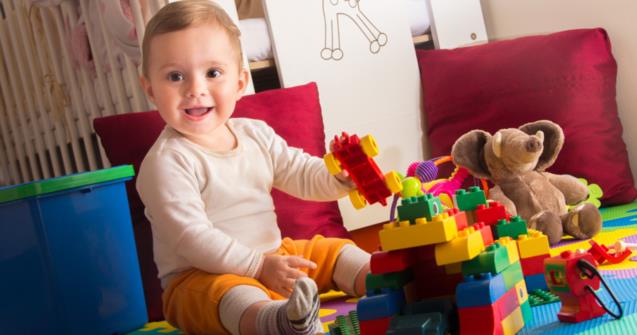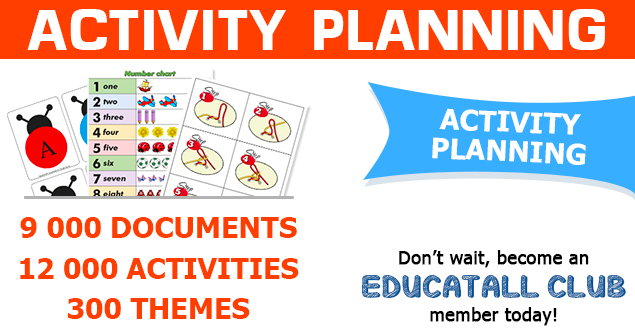
Learning to simplify your days
Have you ever noticed (or at least thought about the fact) that very often, we make things more complicated than they need to be? As early childhood educators, we try to impress children with grand projects when they are quite content with the simplest things. Seeing life through a child’s eyes makes noticing the beauty of simplicity possible. For example, it can help us realize how a simple cardboard box can inspire a magnificent arts & crafts activity. Recently, I attended a conference along with approximately thirty early childhood educators. I was left wondering why we complicate things.
As early childhood educators, we know children enjoy simple objects and activities. They love exploring cardboard boxes, kitchen utensils, sandboxes, and water tables. They also enjoy spending time with their early childhood educator. They like it when we sit with them at lunch time, when we take the time to eat with them and talk about this and that, and when we laugh at their jokes. They like showing us their most recent collage or masterpiece that they created independently, one that represents who they are more than a craft resulting from step-by-step instructions. Sometimes, we unintentionally do too much. After all, children need room to explore, to discover their world on their own.
Keeping all this in mind, how can you simplify your days? Read on to discover a few simple tricks to gradually implement.
Slow down
In most cases, learning to slow down is easier said than done. Running around and quickly moving from one activity to the next is never helpful. We end up feeling overwhelmed and never fully present. Lighten your daily schedule by eliminating whatever you can. Focus on what is important and you’ll have more energy left over at the end of the day!
Replace large toys with everyday items
Think about what you liked to play with when you were a child. If you set a cardboard box in your daycare, children will most likely immediately be drawn to it. Do you see where I am going here? Stop spending large sums of money on toys. Instead, provide everyday items such as cardboard boxes, rocks, pieces of wood, kitchen utensils, etc. Set these items throughout your daycare and watch children’s creativity come to life.
Toys should be available, yet put away
A tidy, organized daycare will have a positive impact on children’s organizational skills. If each toy or type of material has its own pre-determined storage space, your days will be simplified because children will be able to access and use them autonomously. They will be able to plan their activities independently.
Take the time to really “be” with children
There is a huge difference between “doing” something with children and just “being” with them. Children need a lot more “being” than “doing”. Slow down, stop being so busy, and simply talk with them and participate in their games. Take the time to sit at the table with them at lunch time or snack time. Mealtime may last longer than it would have if you were busy doing other things while your group eats, but in the long run, your day will be simplified and the bond between you and the children in your group will be stronger.
Let children play freely
Early childhood educators often feel as if they need to plan a wide range of activities to keep children busy throughout the day. Doing so fosters a sense of accomplishment. Although I still believe in scheduling certain activities, making time (and I mean a lot of time) for free play is essential. Children need periods of free play to develop their creativity and to enjoy a little freedom. Take advantage of periods of free play to observe how children interact and discover their interests.
Never omit circle time, enjoy talking with your group
If you apply the previously mentioned tricks, you will have time to sit down and talk with your group without feeling rushed. Is circle time part of your morning routine? If not, make a point of adding it to your daily schedule. Beyond teaching children prosocial behaviors, circle time will help them build a meaningful relationship with you and their peers. Use circle time to get to know the children in your group better, to chat about their family, their home, etc.
Make a point of being organized
A well-organized environment will help you save a lot of time and energy. If you are constantly searching for the items you need, your days will be much more challenging. Teach children to put things away in the right places and lead by example.
More than anything else, have fun
Laugh with your group, act silly, dress up together… Be sure to make room for fun every day. A relaxed environment makes daily life easier for everyone!
Maude Dubé, Specialized educator

 Home
Home Theme activities
Theme activities
 Babies and toddlers
Babies and toddlers
 Arts and crafts
Arts and crafts
 Science
Science
 Creative recipes
Creative recipes
 Tips and tricks
Tips and tricks
 Special needs
Special needs
 Extra activities
Extra activities
 Educ-TV
Educ-TV
 Newsletter
Newsletter  Online store
Online store Educatall club
Educatall club


